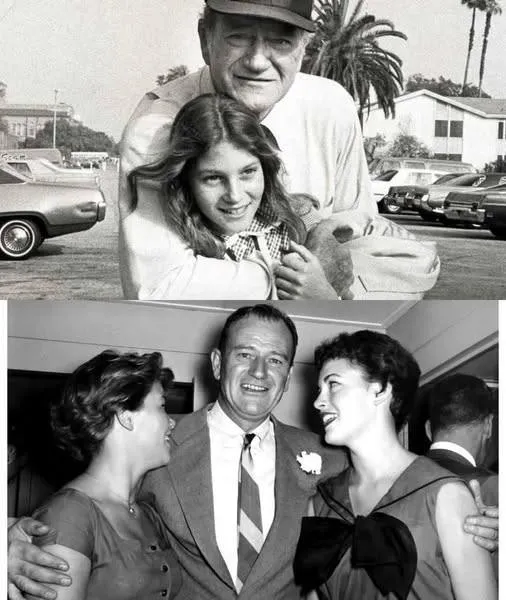Jeremy Renner: The Actor Who Refused to Be Reduced 922

On January 1, 2023, Jeremy Renner’s life was split into two halves: before the accident, and after. That morning in Nevada, what began as a simple family chore turned into a fight for survival that would test his body, his career, and his sense of worth.
Renner had been helping his nephew free a vehicle stuck in heavy snow when disaster struck. A snowplow, weighing more than six tons, suddenly slid out of control. In a split-second act of instinct, he moved to shield his nephew from harm. The heroics saved his loved one’s life, but left Renner himself crushed beneath the machine.
The injuries were catastrophic. More than 30 bones were shattered. His chest collapsed. His lungs failed to draw breath on their own. Emergency crews rushed him to the hospital where doctors performed a series of life-saving surgeries. The star who had once portrayed fearless superheroes on screen now lay broken, his own survival uncertain.
For months, his world narrowed to hospital rooms and rehabilitation centers. Pain became a constant companion. Machines hummed and beeped beside him, marking progress in increments so small they might have gone unnoticed by anyone else. Each breath, each twitch of muscle, each painful stretch became a milestone.

Friends, family, and fans rallied. Social media flooded with messages of support, while Marvel co-stars sent encouragement. Renner himself shared glimpses of his journey, never masking the reality of his suffering, but framing it with grit and determination.
Slowly, painfully, progress came. He learned to sit up, to take steps, to rebuild strength that had been stripped away. The same discipline that had carried him through demanding film shoots now fueled his recovery. Inch by inch, day by day, he reclaimed pieces of himself.
By mid-2023, Renner was walking again, moving with a mix of determination and fragility. He spoke openly about gratitude—about the miracle of being alive, about the chance to still hold his daughter, to still laugh with his family, to still dream of acting again. The accident had scarred him, but it had not ended him.
Then came the phone call. Marvel wanted him back. The studio proposed that he reprise his role, offering a new contract. But there was a catch. The salary, once befitting his star status, had been slashed in half.
For Renner, the offer cut deeper than any injury. After all he had endured, after proving he could stand again, the reduced pay felt like a verdict—that he was no longer the same, no longer as valuable. “They were devaluing me,” he later explained. The offer was not just a number on a page. It was a message about how they saw him.
He faced a choice: accept the diminished terms for the sake of returning, or walk away on principle. Many would have chosen the first, clinging to the stability of a franchise role. But Renner chose the second. He refused, not out of pride, but from a lesson carved into him through pain: to know his own worth.
Turning down Marvel was more than a career decision. It was a declaration. He was not less because of his injuries. He was not half the man, half the actor, or half the professional he had been. His value was not measured by contracts or box office numbers, but by the resilience that had carried him through the unthinkable.
Instead of returning to work on someone else’s terms, he began to rebuild his career on his own. Smaller projects, new collaborations, roles that allowed him to heal at his own pace. Acting remained part of his life, but no longer at the expense of his dignity.
Family became his anchor. Renner spoke often of how his daughter’s presence gave him strength during his darkest hours. The simple joys of fatherhood—helping with homework, sharing meals, watching her grow—became victories greater than any on-screen performance.
The accident, brutal as it was, had given him perspective. Fame and fortune mattered less than waking each morning with breath in his lungs and purpose in his heart. “The most important thing is that I’m still standing,” he said, distilling months of agony and triumph into a single line of truth.
Fans, far from abandoning him, admired his stand. To many, his refusal of Marvel’s diminished offer became another act of courage, proof that the man behind the superhero roles embodied the same unyielding strength.
Renner’s story is not one of defeat, but of transformation. He is no longer just an actor in a franchise. He is a survivor, a father, a man who endured the crushing weight of a machine and the heavier weight of doubt, only to rise with his dignity intact.
As Hollywood continues to shift, his decision reverberates. It challenges an industry notorious for valuing stars only at their peak, reminding it that resilience, authenticity, and human worth cannot be measured in contracts alone.
For Renner himself, the journey is ongoing. His body still heals, his career still evolves, his life still unfolds in ways he never expected. But through it all, he has proven something unshakable: that survival is not just about breathing, but about living on one’s own terms.
Jeremy Renner will forever be remembered for his roles on screen, but perhaps his greatest role is the one he never auditioned for—the role of himself: scarred, tested, but unbroken.
And so his story stands as both warning and inspiration. Life can shatter in an instant, but dignity must never be surrendered. For Jeremy Renner, the lesson is clear: heroes aren’t only written in scripts. Sometimes, they are forged in snow, steel, and silence—and they rise not because of what they earn, but because of what they refuse to lose.
John Wayne Through the Eyes of His Children 190


Many people wonder what life was like for John Wayne’s children from his first marriage after their parents separated. Melinda Wayne, one of those children, has shared a vivid glimpse into the love, lessons, and subtle humor that defined her relationship with the Hollywood legend.
“My dad valued hard work. He made sure we had chores to do,” Melinda recalled. “I was only 4 when my parents divorced. The four of us kids lived with our mom, his first wife, but we called Dad every night. He stayed involved—checking our grades, teaching us to be responsible and good citizens. And we visited him on his movie sets wherever he was working.”
Even as John Wayne became a symbol of rugged American masculinity on screen, at home he remained a devoted father. When filming The Quiet Man in Ireland in 1951, he rented a large house so his children could stay with him. At that time, there were only the four children from his first marriage, though he would later have three more with his third wife.

Melinda recalls arriving in Shannon, Ireland, at age 10, full of curiosity and excitement. Her father, ever the teacher, gave her a warning: “I know you’re going to want to buy gifts and take stuff home, but you’ve got to earn the money.” Young and earnest, Melinda took his words literally. The next morning, she rose at 6 a.m., walked a mile to town, and convinced a man to hire her to sweep floors.
Returning to the house later, she found everyone in panic. “We thought you were kidnapped!” they exclaimed. Sitting calmly at the dining room table, John Wayne asked, “Nice of you to show up for breakfast. Where have you been?”
Tears streaming, Melinda explained, “I went and got a job, like you said.”
He blinked and replied, with his characteristic dry humor, “You what? I meant here! On the set! To be in the crowd scenes!”
Even in moments of confusion, Melinda learned lessons that would stay with her for life. She found ways to work hard, gain experience, and embrace responsibility. A few years later, at age 14, she got a job at Ohrbach’s department store. Through it all, her father guided her with patience, laughter, and a firm sense of accountability.

Melinda also shared insights into her father’s humility. Despite his larger-than-life image, John Wayne would likely have been embarrassed by the John Wayne Airport in Santa Ana, California, and the massive statue in his honor. “He never wanted to be president or have things named after him,” she said. “He knew he had to be famous because that’s how you got your movies made. But he was actually very humble.”
Even in his final days, John Wayne’s thoughts remained on gratitude and legacy. Speaking to Melinda’s late brother Michael, he said: “Whatever you do, use my name for the benefit of the public. If it weren’t for the public, I wouldn’t be here, you wouldn’t be here. We wouldn’t have had the life we had.”
Those heartfelt words became the seed for the John Wayne Cancer Foundation, ensuring that his name would continue to support others long after he was gone. For his children, the memories of a father who balanced fame with humility, discipline with love, and guidance with gentle humor remain the true legacy.
Through Melinda’s reflections, we see John Wayne not only as an iconic actor, but as a father who cared deeply, taught courage in everyday moments, and never underestimated the value of work, love, and service. His lessons went far beyond the silver screen, shaping children who would carry his values—and his heart—throughout their own lives.
In remembering John Wayne, it is the quiet moments, the guidance, and the understated acts of humility that shine as brightly as any spotlight in Hollywood.





